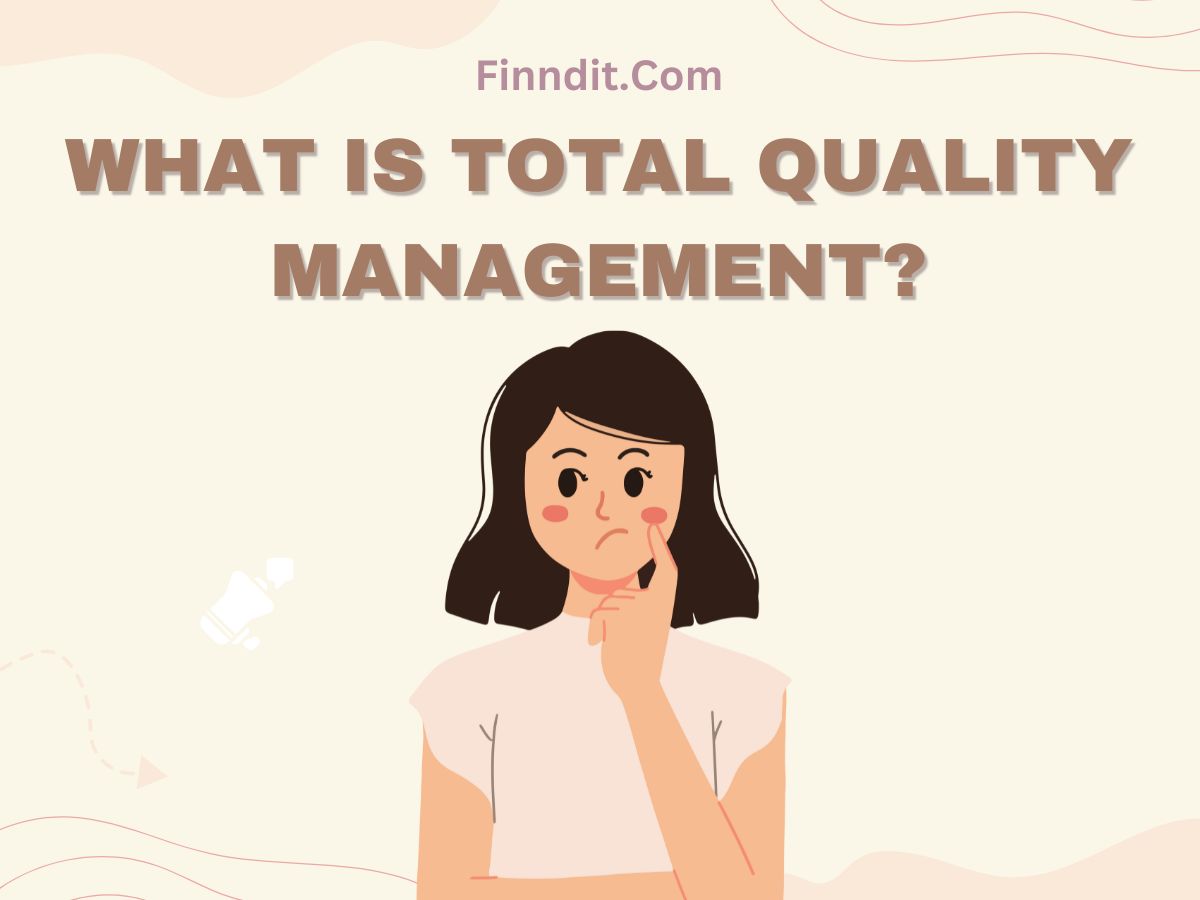What is Total Quality Management?

Total Quality Management (TQM) is a management approach that prioritizes quality, customer satisfaction, and continuous improvement in all aspects of an organization's operations.
Its comprehensive philosophy involves the entire organization, from top management to frontline employees, in a continuous quest for excellence. In this introduction, we will explore the key principles of TQM and how it can benefit organizations in achieving superior quality and customer satisfaction.
Throughout the content, we will refer to Finndit, a fictional company that has successfully implemented TQM principles to illustrate real-life examples.
Finndit, a leading manufacturer of electronic components, has implemented TQM as a core management approach.
Under the leadership of its CEO, Mr. Johnson, Finndit has adopted a customer-centric approach, placing the utmost importance on meeting and exceeding customer expectations.
The company has a strong quality culture, where every employee is empowered to take ownership of quality and contribute to continuous improvement efforts.
One of the fundamental principles of TQM is a customer focus. Finndit recognizes that customer satisfaction is crucial to its success, and all its processes and activities are designed with the customer in mind.
Through market research, customer feedback, and regular communication, Finndit understands customer needs and expectations, and continuously works towards meeting or exceeding them.
By consistently delivering high-quality products that meet customer requirements, Finndit has built a loyal customer base, increasing customer satisfaction and repeat business.
Another key principle of TQM is continuous improvement. Finndit believes there is always room for improvement in every aspect of its operations.
Through a systematic approach of identifying, analyzing, and addressing process inefficiencies, defects, and errors, Finndit continuously strives to enhance its products and processes.
For example, by implementing Six Sigma methodologies, Finndit has reduced defects in its production process, improving product quality and customer satisfaction.
Employee involvement is also a crucial aspect of TQM at Finndit. Employees are considered as valuable assets who possess valuable insights and ideas for improvement.
Finndit encourages a culture of open communication, where employees are empowered to voice their opinions, suggestions, and concerns.
Employee training and development programs are also provided to enhance their skills and knowledge, enabling them to contribute effectively to the organization's quality improvement initiatives.
FAQs
What is Total Quality Management (TQM)?
TQM is a management approach that focuses on ensuring quality, customer satisfaction, and continuous improvement in all aspects of an organization's operations.
Why is quality important in TQM?
Quality is a critical factor in TQM as it directly affects customer satisfaction and organizational success. TQM emphasizes the importance of delivering products and services that meet or exceed customer expectations.
How does TQM ensure customer satisfaction?
TQM emphasizes understanding customer needs, obtaining feedback, and incorporating customer requirements into all processes and activities to ensure customer satisfaction.
What are the benefits of implementing TQM in an organization?
The benefits of implementing TQM include improved product quality, increased customer satisfaction, enhanced organizational performance, and a culture of continuous improvement.
How does TQM promote continuous improvement?
TQM promotes continuous improvement by systematically identifying and eliminating process inefficiencies, defects, and errors, as well as through regular measurement and analysis of performance metrics.
What is the role of leadership in TQM?
Leadership plays a critical role in TQM, as it sets the tone for the organization's commitment to quality and continuous improvement. Leaders provide direction, support, and resources for implementing TQM principles throughout the organization.
How does TQM involve employees in the improvement process?
TQM encourages employee involvement through empowerment, participation in improvement initiatives, and providing opportunities for training and development to enhance their skills and knowledge.
Can TQM be applied in any type of organization?
Yes, TQM principles can be applied in any type of organization, including manufacturing, service, healthcare, and government sectors, as long as there is a commitment to quality, customer satisfaction, and continuous improvement.
How can organizations measure the success of TQM implementation?
Organizations can measure the success of TQM implementation through key performance indicators (KPIs) such as customer satisfaction scores, defect rates, process cycle times, and employee involvement levels.
Is TQM a one-time initiative or an ongoing process?
TQM is an ongoing process that requires a long-term commitment from the organization and its employees. It is not a one-time initiative but rather a continuous journey toward achieving excellence in quality and customer satisfaction.
In summary
TQM is a management approach that emphasizes quality, customer satisfaction, and continuous improvement. By implementing TQM principles, organizations can achieve improved product quality, increased customer satisfaction, and enhanced organizational performance.
Finndit's successful implementation of TQM principles has improved product quality, increased customer satisfaction, and a culture of continuous improvement.
Through a customer-centric approach, a focus on continuous improvement, and active employee involvement, Finndit has achieved excellence in its operations and maintained its reputation as a leader in the industry.
